In immediate postcolonial Africa…the various decolonized or soon-to-be decolonized countries didn’t know too much about one another. If you were francophone, your orientation was towards France, and then through France you received the filtering of creative, cultural information, cultural practices and so on, through the French metropolis. Transition was one of the instruments for bringing Africa together internally and turning the face of Africa towards the African diaspora as well.
Wole Soyinka, in conversation with Tommie Shelby, former editors of Transition
Transition Magazine Timeline
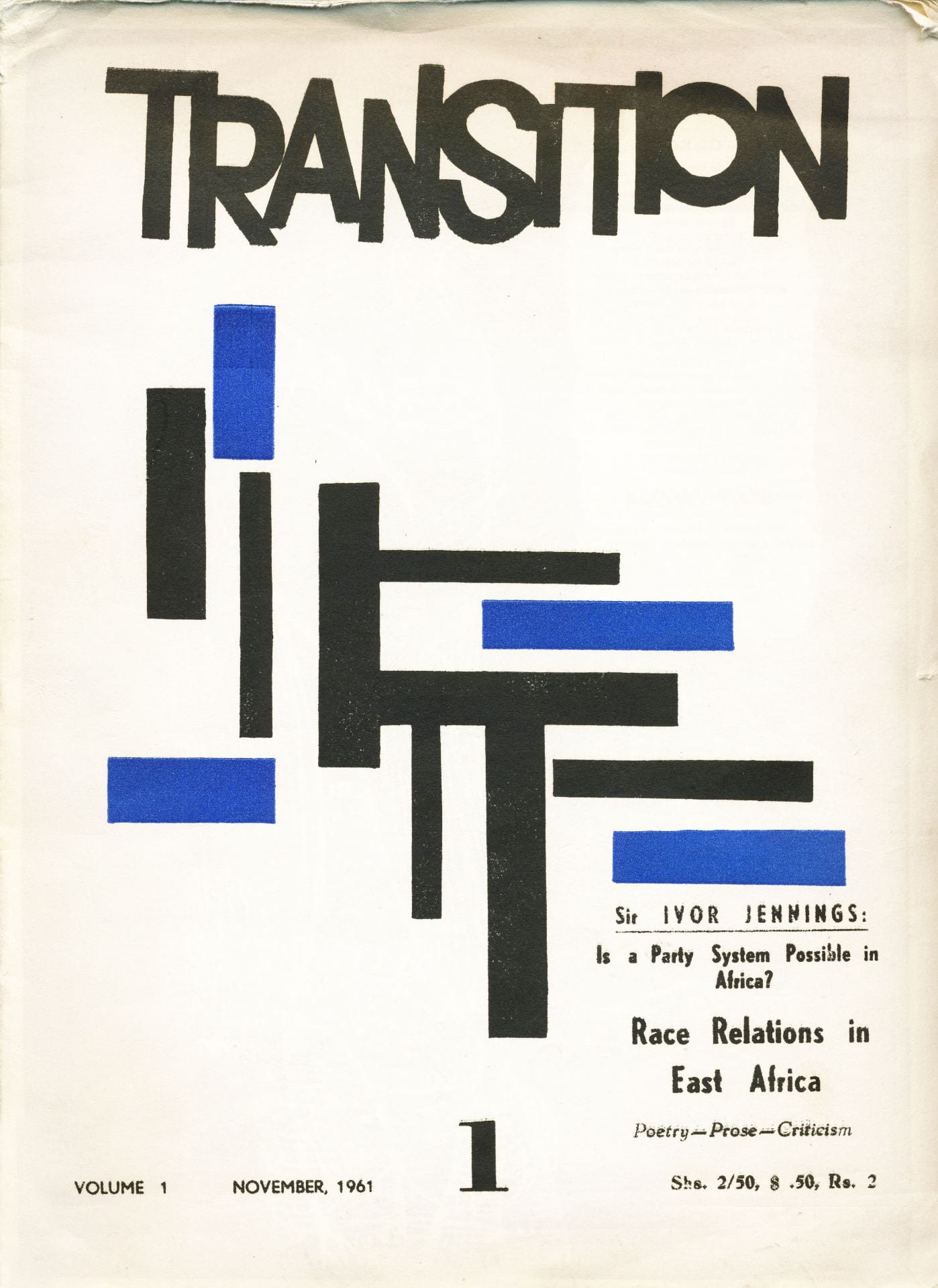
Transition Magazine is founded in Kampala, Uganda, (the year before independence) by Rajat Neogy. Transition becomes a center of debate during the beginning of decolonization.
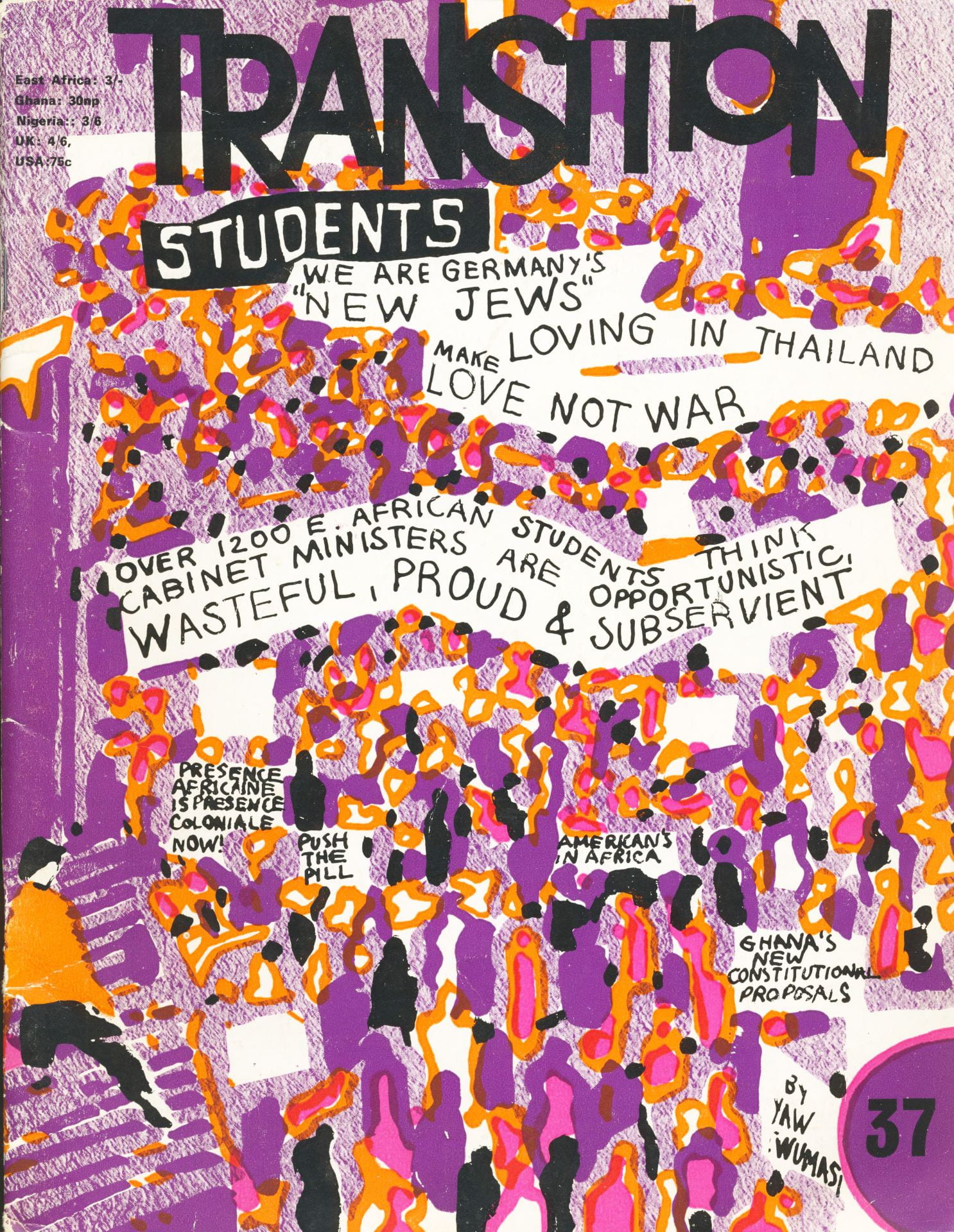
Neogy jailed (after the publication of T37) in Uganda by President Milton Obote for publishing “subversive” writings
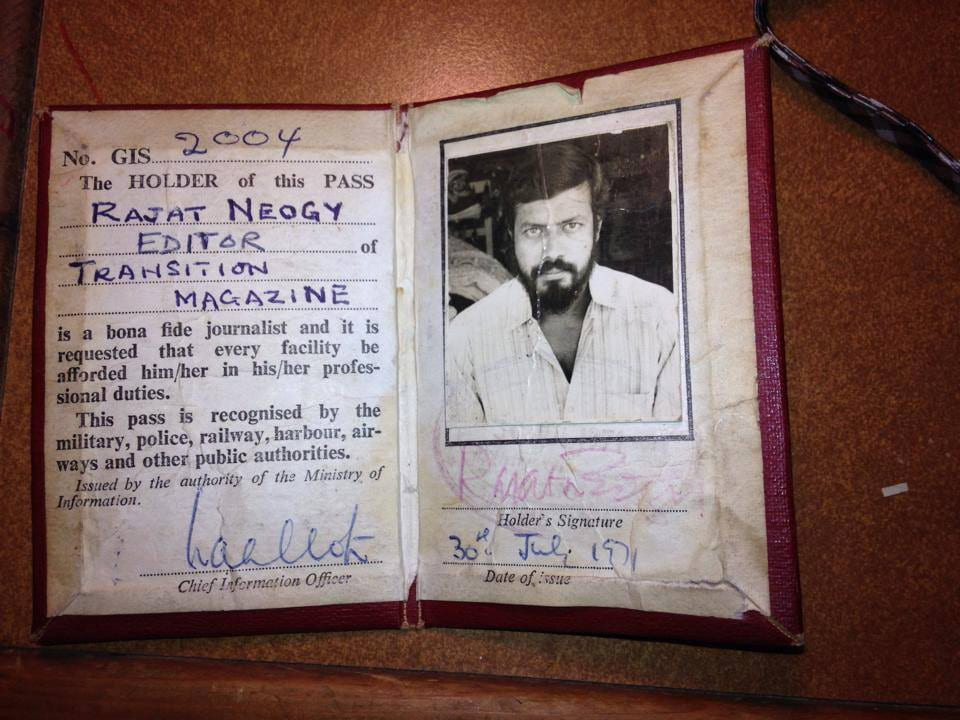
Neogy leaves Uganda in 1969 and begins operating the magazine from Accra, Ghana in 1971.
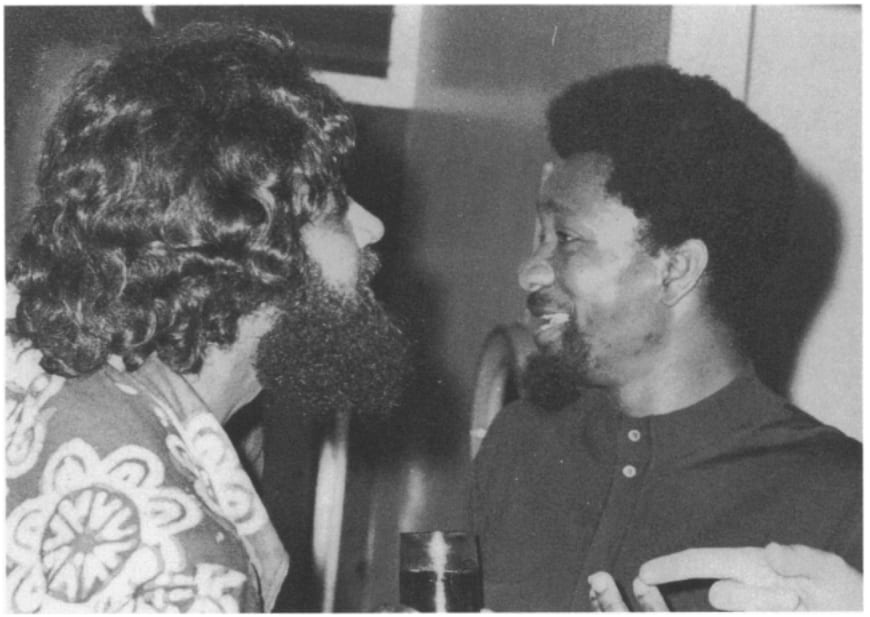
Neogy hands over editorship to Soyinka, who brings it to Nigeria.

Henry Louis Gates, Jr., Anthony Kwame Appiah, and Wole Soyinka resurrect the magazine in 1990. It is first run under the auspices of the W.E.B. Du Bois Institute, and then the Hutchins Center of African and African American Research at Harvard University.
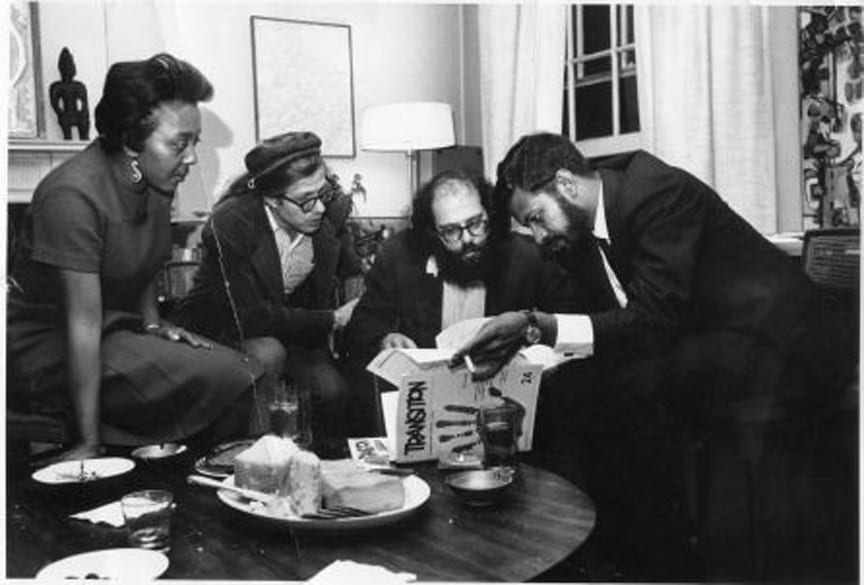
Our History
Explore Our Rich History
Transition was founded in 1961 in Uganda as an East African literary magazine. The brainchild of a twenty-two year old writer of Indian descent named Rajat Neogy, it quickly became Africa’s leading intellectual magazine during a time of radical changes across the continent.
Read more
Rather than serving as a storehouse for the new work emerging in the 1960s, Transition was the mill that generated debate among its writers and readers. Chinua Achebe, James Baldwin, Julius Nyerere, Ali Mazrui, Paul Theroux: diverse figures shared space in each issue, and hard words in the lively letters section, where entire ideologies were born. Transition was never afraid to offend and frequently invited controversy with articles about literary and racial politics, sex, stereotypes, and the regimes in power, while at the same time always making space in its own pages for robust retaliation.
In 1968, the Ugandan government jailed Neogy for sedition despite international outcry; the magazine had criticized President Milton Obote’s proposed constitutional reforms. After Neogy’s release, Transition was revived in Ghana in 1971 and the Nigerian novelist Wole Soyinka took over in 1973. During Soyinka’s tenure, Transition became still more contentious: the cover of one issue sported a cartoon image of Ugandan dictator Idi Amin, with “Karasi!” (“Finish Him!”) splayed across his face. Transition was unlike anything else, in Africa or abroad, and when it folded in 1976 for financial reasons it left a void.
Henry Louis Gates, Jr., a student of Soyinka’s at Cambridge University and a frequent contributor to the Ghanaian Transition, brought the magazine back to life in 1991. In the subsequent decade, Transition would refashion itself as an international magazine about race and culture, with an emphasis on the African diaspora. Decolonization was the transition of the 1960s. Today Globalization can be considered our transition–as we continue to explore what decolonization means in a post-colonial world. In our American incarnation, the magazine has won a wide array of awards for design, international reporting, and general excellence; our essays and interviews have been reprinted around the globe.
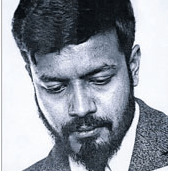
Rajat Neogy
Founding Editor
…the ultimate purpose of a literary magazine will always be to herald change, to forecast what new turn its culture and the society it represents is about to take. It will do this by sometimes allowing prejudice and temporary obsessions to be aired [and] by being permissive to radical innovations.
November, 1961
First Issue
Transition’s first issue draws its radical vitality from a mixture of genres: poetry, short fiction, longer think pieces on independence, the party system, Uganda’s economy, race relations in East Africa, and the place of the Catholic missionary–as well as profiles, book reviews, anonymous diary entries, short dispatches from the political arena, and excerpts from expatriates’ correspondence home.
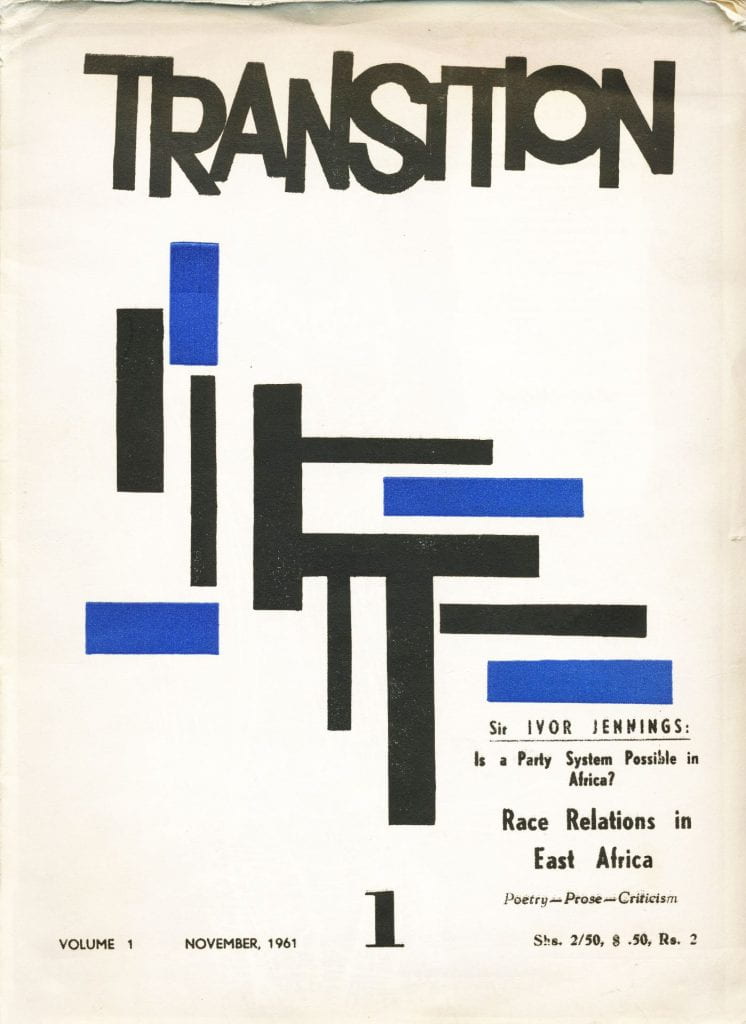
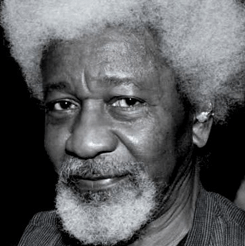
Wole Soyinka
Former Chairman of the Editorial Board
The greatest threat to freedom is the absence of criticism.
Become Part of Our History
Call for Submissions
Transition alternates between publishing issues that focus on one theme and issues that don’t have a theme. See our Submittable page for the current theme. At any time of the year, we invite you to submit work, whether it addresses the theme or not.
